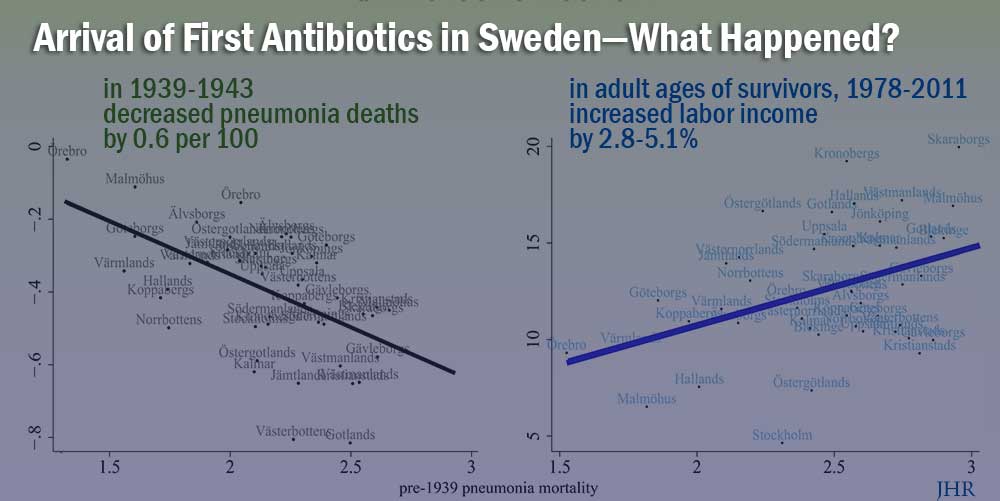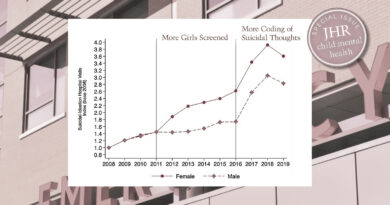Sulfa Antibiotics for Pneumonia in Children—A Look at Later-Life Outcomes
Pneumonia infection is a leading cause of illness in children worldwide, but we know little about its long-term consequences. Economists are interested in the long-run effects of large-scale interventions in early life. Volha Lazuka (Lund University) explores this question in the context of the introduction of sulfa antibiotics in Sweden. In a study comparing cohorts born before and after access to this intervention and across regions with varying burden of acute pneumonia, Lazuka is able to estimate its effects and specific mechanisms leading to later-life outcomes.
The study is based on rich individual- and family-level data from multiple registers, archival data on regional availability of antibiotics, and precise measures of pneumonia mortality, allowing for a more careful analysis than done previously. The sudden arrival of the first antibiotics particularly efficient against pneumonia among infants in 1939 in Sweden—sulfapyridine—allowed Lazuka to implement the difference-in-differences method. The study followed the cohorts from infancy through late adulthood and looked at effects on income, health, and education.
Mitigation of pneumonia infection in infancy due to sulfapyridine increased labor income in adulthood of survivors by 2.8–5.1 percent, fairly equally for men and women. The present value of these additional earnings exceeds the costs of treatment with antibiotics in childhood by 34 times. The beneficial effects are strong for health, as measured by hospital stays, especially for those due to respiratory illness, cardiovascular morbidities, and arthritis. A weaker effect was found for years of schooling.
As Lazuka notes, the message of this study is clear, “Improvements in disease conditions in early life with publicly provided medications and interventions are essential not only in reducing the current burden of disease, but also in promoting human capital accumulation and income growth in the long run.”
Read the full study in the Journal of Human Resources: “Infant Health and Later-Life Labor Market Outcomes: Evidence from the Introduction of Sulfa Antibiotics in Sweden,” by Volha Lazuka.
***
Volha Lazuka (@volhalazuka) is at the Department of Economic History and the Centre for Economic Demography, Lund University.
Funding acknowledgements: Ebbe Kock foundation (Lund University, Sweden, grant EK2016-0004) and Department of Economic History (Lund University, Sweden)




